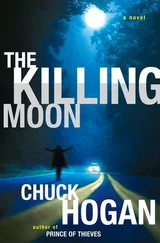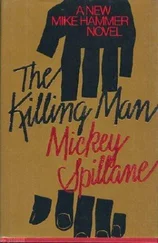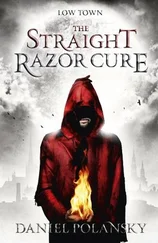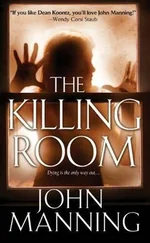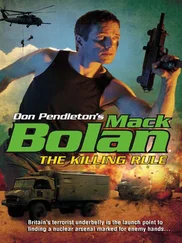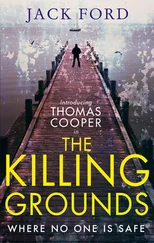Daniel Polansky - Tomorrow, the Killing
Здесь есть возможность читать онлайн «Daniel Polansky - Tomorrow, the Killing» весь текст электронной книги совершенно бесплатно (целиком полную версию без сокращений). В некоторых случаях можно слушать аудио, скачать через торрент в формате fb2 и присутствует краткое содержание. Жанр: Старинная литература, на английском языке. Описание произведения, (предисловие) а так же отзывы посетителей доступны на портале библиотеки ЛибКат.
- Название:Tomorrow, the Killing
- Автор:
- Жанр:
- Год:неизвестен
- ISBN:нет данных
- Рейтинг книги:3 / 5. Голосов: 1
-
Избранное:Добавить в избранное
- Отзывы:
-
Ваша оценка:
- 60
- 1
- 2
- 3
- 4
- 5
Tomorrow, the Killing: краткое содержание, описание и аннотация
Предлагаем к чтению аннотацию, описание, краткое содержание или предисловие (зависит от того, что написал сам автор книги «Tomorrow, the Killing»). Если вы не нашли необходимую информацию о книге — напишите в комментариях, мы постараемся отыскать её.
His name is Warden.
He thought he had left the war behind him, but a summons from up above brings the past sharply, uncomfortably, back into focus. General Montgomery's daughter is missing somewhere in Low Town, searching for clues about her brother's murder. The General wants her found, before the stinking streets can lay claim to her, too.
Tomorrow, the Killing — читать онлайн бесплатно полную книгу (весь текст) целиком
Ниже представлен текст книги, разбитый по страницам. Система сохранения места последней прочитанной страницы, позволяет с удобством читать онлайн бесплатно книгу «Tomorrow, the Killing», без необходимости каждый раз заново искать на чём Вы остановились. Поставьте закладку, и сможете в любой момент перейти на страницу, на которой закончили чтение.
Интервал:
Закладка:
It was a year after the disaster at Beneharnum had proved the futility of waging warfare in ranked formation even to the most hidebound traditionalist. Tactics had developed accordingly – trenches were miserable, cramped and cold, but they kept you out of sight of any practitioners that might be waiting, and they were moderately effective against cannon. We’d long settled into the steady attritional warfare that had come to characterize the conflict, an endless succession of raids and counter-raids, of static lines and fighting rats for food.
Those of us in the ranks, that is – the brass still dreamed of a break out, of a sudden puncture to the Dren lines that would allow us to roll them back all the way to Donknacht. It was a fantasy which would take a long time to die, and would carry a hell of a lot of men with it.
My hopes of advancement had proved prescient, though I attributed that less to any particular genius on my part than to the decimation of the officer class during the opening phase of the conflict. If things continued at this rate they’d be making drummer boys into brigadier generals inside of six months. Even with my rapid rise through the ranks, my presence at the meeting was out of the ordinary. Calling a meeting of officers before committing troops to battle was a common enough activity, including anyone so far down the pole as myself was most certainly not.
But then, Roland Montgomery was no ordinary officer.
This was early on in his career, before his glorious charge at Gravotte carried the field, before he withstood seven weeks besieged in the Matz salient absent of outside support. The legend was in its infancy, but it was easy enough to see the seed. He was, first and foremost, strikingly handsome. It was the worst kept secret in the Thirteen Lands that the brass was thick with buggerers, and looking around at my fellow officers, there were no fair few gazing at the colonel with something more akin to adoration than respect. But even amongst those of us for whom a well-toned buttock was no particular object of affection, it was hard to miss the fact that Roland Montgomery seemed to have been hewn from marble rather than pushed out a womb. He radiated health and good cheer, no small feat given that he was effectively in the midst of an inconceivably vast infirmary, and we lost a hundred men a day to the flux. Added to that was his heritage, that he was the latest in a long line of Montgomerys that had pursued the Crown’s enemies in foreign lands, that his father even then was held with something resembling reverence by large swathes of the ranks.
All of these were secondary, however, to the indefinable aura of certainty that he carried with him like a heavy winter cloak. Every motion he made and every word he uttered seemed to carry with it a sense of profound meaning, as if the Firstborn himself had decreed that, at this exact moment, Roland was to smile or shake his head or greet you. He was, in short, a man of destiny. You strained to listen when he spoke, pushed past friends to approach him, found yourself held captive by the deep blue of his eyes and the unshaken strength of his convictions.
So contradicting the plan he had just put forth – suggesting that it might even be possible to contradict it, that he was capable of error even in theory – took a bit of firmness on my part. ‘I’m afraid I have a concern, sir.’
It was also not an activity likely to gain me any friends. As befit my relatively lowly rank, I was in the back of the twenty or so soldiers clustered about the colonel. The front row was made up of men most similar to Montgomery, in background, position and pedigree. The terrible casualties we’d suffered had allowed a few of us to ascend to the middle rungs of the military hierarchy, but the upper echelons were still composed exclusively of aristocrats.
I tried not to hate them. That they were in Nestria at all meant something, when so many of their fellows had found convenient excuses for remaining at home – sudden injuries, unexpected nuptials. And I didn’t imagine Roland would keep around him anyone whose courage or fortitude was suspect. But then, impartiality is not my strong suit, and I had to swallow down hard on my contempt to keep it from showing on my face.
They seemed in no hurry to extend me a similar courtesy. The man whom I would later come to know as Joachim Pretories swiveled an eye off the colonel, turned it nasty, and aimed it at me. The rest of his pack joined suit. If I had been operating under any illusion that my opinion was wanted, the black looks I got from Roland’s inner circle were enough to convince me otherwise. I was not there to speak; I was there as a demonstration of Roland Montgomery’s populist leanings, of the affection and love he had for his men, even for the lowliest of us.
By contrast, Roland himself seemed almost pleasantly surprised at my interruption. ‘Of course, Lieutenant,’ Roland said. ‘Speak your mind.’
I cleared my throat uncomfortably. Back then I was still concerned with my thick Low Town patois, widely considered by the rest of the Empire to be somewhere between repulsive and incomprehensible. In later years I would come to recognize it as an asset, lulling my audience into a false sense of superiority. Most folk born north of the river Andel dismissed me after my first sentence, assumed I wasn’t anything more than a thug, didn’t learn otherwise till it was too late. But at that moment, surrounded by baronets and princelings, I was conscious of every dropped syllable and swallowed consonant.
I brushed towards the front, through a mass of men wishing me ill, toward the board and the map that Roland had been using to indicate our plan of attack. ‘These six inches,’ I said, pointing to a corresponding spot, ‘are three hundred yards of muck, utterly without cover of any kind. This light brown shading,’ I moved my finger a tick, ‘an uphill slog that narrows the front to the point where our forces can be massacred in detail. And these markers here,’ again shifting my aim to the blue pins meant to indicate the enemy forces, ‘are at least three battalions of the most vicious, competent, battle-hardened souls the Firstborn ever saw fit to inflict upon our benighted world. A simple statement of the facts at hand should be sufficient to show that what you propose is, in short, impossible.’
No one said anything for a while. Most of them seemed to take the criticism as the product of sheer gutlessness. For a bare handful, perhaps, my words served reminder that their bodies were composed of flesh and sinew, as were the men in their command. Roland remained absolutely passive, his faint smile unaffected by my arguments.
It was up to his leader of cavalry, a major with the exhausting name of Conrad Baldwin de Camville, to take the offensive. By this point in the war it was long since clear that the continued existence of the cavalry arm was an anachronism – the best pedigreed stud in the Empire was useful only as a pack animal or fresh meat. For that substantial portion of the gentry who had grown up with a saber in hand and dreams of valiant charges in mind, this was a hard truth to accept. Conrad was very much one of those. He still wore the full kit, six-inch silver spurs on boots of freshly shined black leather. His jacket and pants were bright crimson, fringed with gold, and his sword had a pearl the size of a bull’s eye set in the pommel.
‘No one is suggesting that our objective will be gained without cost, Lieutenant,’ he said, stressing the three syllables in my rank in a fashion more reserved for other, less flattering epithets. Traitor, for instance. Or child molester. ‘But the ridge is the lynchpin of the entire area. Any hope of our regaining northern Nestria relies on taking it.’
‘It is indeed, sir – and they hold it. They’ve held it for the last two months, and they’ve been strengthening it the entire time.’
Читать дальшеИнтервал:
Закладка:
Похожие книги на «Tomorrow, the Killing»
Представляем Вашему вниманию похожие книги на «Tomorrow, the Killing» списком для выбора. Мы отобрали схожую по названию и смыслу литературу в надежде предоставить читателям больше вариантов отыскать новые, интересные, ещё непрочитанные произведения.
Обсуждение, отзывы о книге «Tomorrow, the Killing» и просто собственные мнения читателей. Оставьте ваши комментарии, напишите, что Вы думаете о произведении, его смысле или главных героях. Укажите что конкретно понравилось, а что нет, и почему Вы так считаете.

